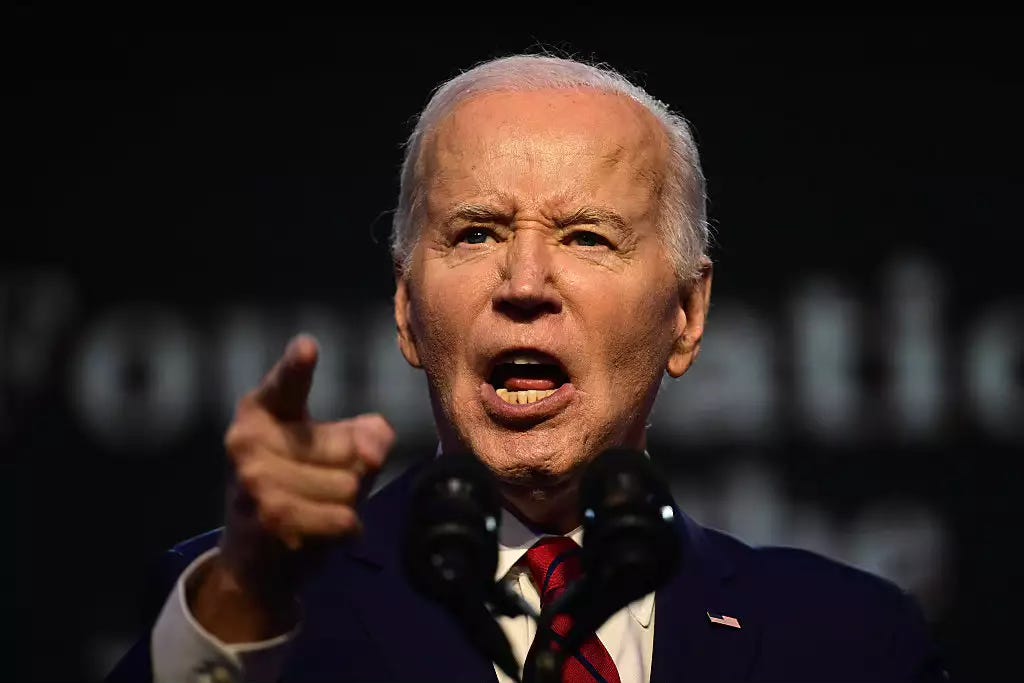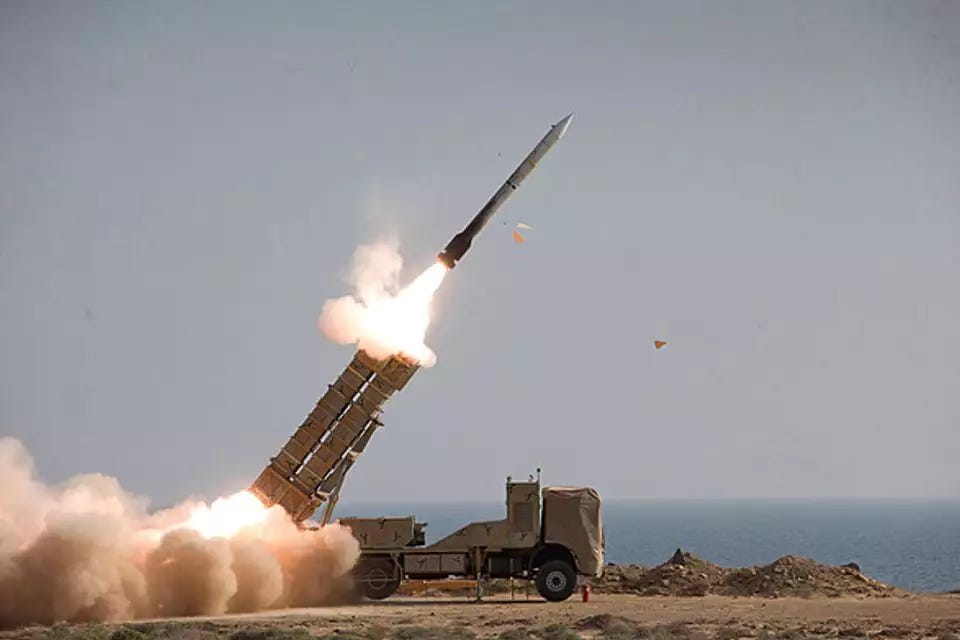This article is an adaptation of a Hebrew article which appeared in Israel Hayom.
While adamantly opposing Israel’s incursion into Rafah, withholding the supply of both vital munitions and intelligence to the IDF, the United States is also offering incentives. If Israel refrains from the Rafah operation, the White House has pledged to secure a peace treaty between us and Saudi Arabia, to organize an inter-Arab force to rebuild and restore order to Gaza following Israel’s withdrawal, and—perhaps most attractively—to spearhead a NATO-like alliance of Middle Eastern countries as a strategic bulwark against Iran.
The offer indeed seems enticing. For the first time, the U.S. is publicly proposing to stand foursquare alongside Israel and its moderate Sunni neighbors in opposing Iranian aggression. But, for Israel, the proposal poses painful dilemmas. Should we pursue our goal of pressuring Hamas to release our hostages and eliminating its leadership or risk facing the next onslaught of Iranian missiles alone? Should we allow a degraded Hamas to survive but be better defended against the far greater threat of Iran?
Such questions cannot be answered, though, without first addressing even more fundamental ones. To what degree, if at all, will the regional alliance prove effective in deterring Iran? Is the U.S.-led anti-Iranian axis a not-to-be-missed opportunity for Israel or, quite the opposite, a hands-tying trap?

Assessing the alliance’s benefits and pitfalls will undoubtedly prove difficult but, as always, history can help. This is far from the first time that the United States has tried to organize the Middle East for regional defense. Starting in 1950, with the Cold War boiling, America sought to create a Middle East Defense Organization comprised of North African, Persian Gulf, and Fertile Crescent states. Together with the Baghdad Pact of the so-called Northern Tier countries—Turkey, Iran, Pakistan, and Iraq—MEDO would secure the area from Soviet penetration.
The key to creating MEDO lay in the largest and most powerful Arab state, Egypt. But Egyptian dictator Gamal Abdul Nasser viewed the organization as merely a ploy to perpetuate imperialist rule over the region and all but declared war against the project. By 1955, with Jordan’s King Hussein threatened by Nasserist riots and refusing to join MEDO, the alliance was essentially dead.
Only one Middle Eastern country was never invited to participate in any regional defense plan. Though Prime Minister David Ben-Gurion and his foreign minister, Moshe Sharett, considered membership in MEDO a concrete means of defending the state, both the U.S. State Department and Britain’s Foreign Office consistently turned them down. “Israel,” complained our famed statesman Abba Eban, “is the sole state that repeatedly knocked at the door of regional defense but was always turned away.”
MEDO and the Baghdad Pact were both based on the North Atlantic Treaty Organization. Founded after World War II, NATO was predicated on the assumption of America’s willingness and ability to use military force. That capability was again demonstrated in the Korean Conflict 1950-53) and, a decade later, in Vietnam.
Similarly, America’s largescale military interventions in Afghanistan and Iraq might have proved the basis for a robust regional defense architecture against Iran. But more than a decade has passed since the United States has responded militarily to any major threat—not in Europe after the Russian invasion of Ukraine and neither in the Middle East. Iranian-backed militias launched more than 170 attacks against U.S. bases in Iraq, Syria, and Jordan, wounding dozens and killing three, but Washington refused to retaliate against Tehran. Even when Iran fired some 350 projectiles, a third of them highly destructive missiles, at its ally, Israel, the United States reacted only passively by helping to shoot them down. Rather than punishing the Ayatollahs, the White House pressured Israel to keep its response to a minimum.
Israel must certainly express its gratitude to the United States for assisting in the defense of our skies, for approving generous aid packages, and for proffering its good offices to mediate a peace between us and the Saudis. But the establishment of a regional defense organization, especially one incapable of mounting an active deterrence against Iran, cannot substitute for Israel’s ability to defend itself against any Middle Eastern adversary. No regional pact can be permitted to deny Israel’s right to self-defense or limit its freedom to exercise that right.
Again, we should refer to history. Back in January-February 1991, Saddam Hussein of Iraq fired thirty-nine Scud missiles at Israel. Prime Minister Yitzhak Shamir wanted to strike back but was pressured by President George H.W. Bush to stand down. Instead, Israel hosted U.S. Army batteries of Patriot missiles. These proved utterly ineffective in intercepting the Scuds, but successful in sending a message of vulnerability to our foes. The decision to outsource our security to a foreign country, President Ezer Weizman later claimed, was the worst ever made by Israeli leaders.
In conclusion, Israel can say yes to a post-war inter-Arab force in Gaza and peace with Saudi Arabia, but not at the price of retreating from Rafah. Israel can say yes to regional defense, but not at the cost of our freedom of action. Israel can say yes to many spheres of cooperation with the United States and with our common Arab allies, but we must never surrender our sovereignty.






It's a trap. The carrots the White House is offering can be more readily achieved after victory over Hamas. Stand firm in the face of all danger and the result will be a better future for all.
Considering how the Saudi military performed as part of the U.S. coalition in the first Iraq War and recently in its war in Yemen, it’s unclear what the Kingdom brings to the table on the security angle.
Given how the U.S. withdrew support for Saudi Arabia in Yemen and its decision to withhold certain munitions from Israel currently, not to say the straight jacket it imposed on Ukraine, our reliability as a military partner - one that is increasingly becoming the embodiment of an unhelpful penchant to “self-deterrence” - can reasonably be called into question.
And, while they can’t say so publicly for a variety of reasons, the Sunni states not already subjugated to Iran all wish to see Hamas destroyed. In the world of the “strong horse”, Israel must enter Rafah and finish off Hamas.
In the Middle East, you don’t get points for moderation or pulling your punches - a lesson that “enlightened” Westerners refuse to accept in our narcissistic belief that everyone wishes to be like us. In that sense, Israel is the West’s only real bridge to the region, having as it does one foot in the West and the other in the Levant. Instead of taking advantage of Israel’s role as a state dragoman, the West lectures and hectors it unproductively.
In my view, the answer to the U.S. offer is a polite “not at this time” and the justification must be that the hostages have suffered enough - and if the U.S. does have actionable intel on their whereabouts, the IDF will cooperate with our Seal or Delta Force teams in their rescue.
The overall narrative must be: Hamas cannot use the continuing war crime of hostage taking to immunize it from the consequences of another war crime, the brutal murder of civilians. To allow Hamas to survive in any form is to make a mockery of international law to the detriment of all law abiding states. Is that really the world the West wishes to usher in?